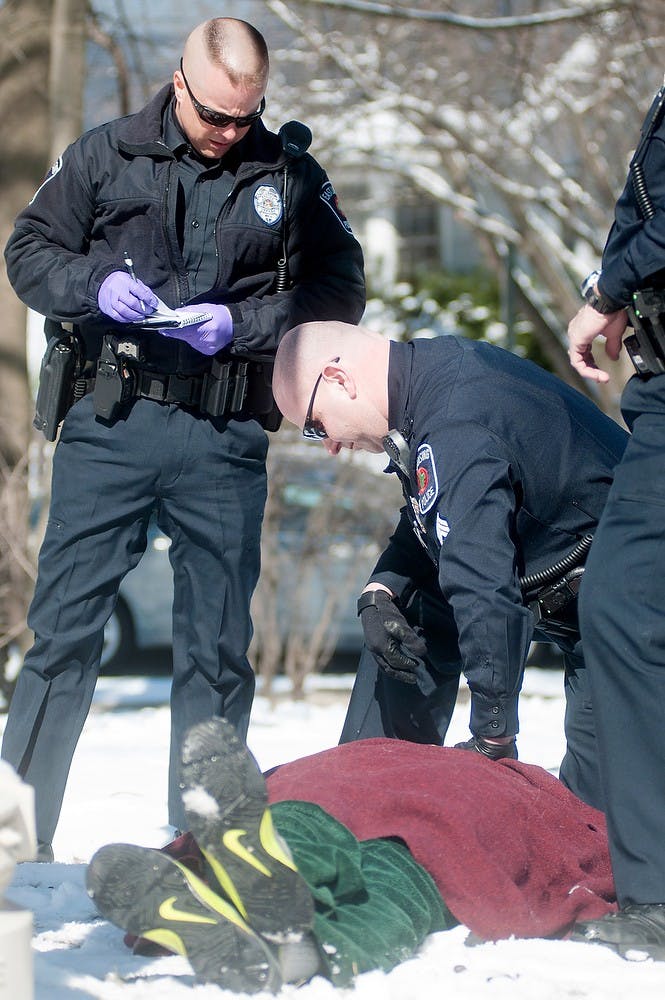While most students try to avoid an encounter with the police, some students find themselves in handcuffs, as several St. Paddy’s Day celebrators found out this weekend.
Local attorneys and police said complying with officers’ demands can de-escalate a situation, but knowing your rights and how not to make things worse sometimes can mean the difference between a simple citation and an arrest.
“I think most students haven’t really thought about it,” graduate student Nichole Sparapany said of knowing rights during an arrest. “You don’t want to make a bad situation worse by doing something you didn’t know what was over the line.”
Here are some tips on how to deal with a potential arrest.
A student’s behavior
When an officer starts to place a person under arrest, local attorneys and police said it is best to comply and deal with concerns later.
“I see a lot of kids getting multiple charges because they resist the officer,” East Lansing City Attorney Tom Yeadon said. “Not only do they have one charge, but now they have a more serious resisting charge.”
Resisting an officer is a misdemeanor punishable with up to 90 days in jail, a $500 fine or both, Yeadon said.
He said resisting arrest might eliminate any chance of a plea bargain to a lower charge, especially if an officer is injured. Complying with an arrest, in particular with students without prior arrests, might mean local prosecutors will be more lenient.
MSU police Sgt. Florene McGlothian-Taylor said students can ask what they are being arrested for, and friends who want to help should ask when their friend will be released.
She said students who witness a friend being arrested should not interfere, or they could be arrested as well.
Students should know they have the right to remain silent, and if they choose to speak, they should tell the truth to avoid further charges for providing an officer with false information, said attorney Brian Jeffries, who works under ASMSU’s free legal services program for students.
An officer’s behavior
It was once legal to resist an unlawful arrest, but now it is illegal to resist, Yeadon said.
Both Yeadon and Jeffries said if a student feels they were unlawfully arrested or has concerns about the officer, the issue should be addressed with their lawyer and in court, not on the roadside.
“Our advice is be compliant, regardless of the officer’s attitude,” Jeffries said.
Jeffries said although people can speak and assert their innocence, police have a large amount of discretion when choosing to make an arrest.
Jeffries said despite the common misconception, if officers don’t explain a student’s basic Miranda rights — their rights they have when under arrest, think “Right to remain silent” — their case will not necessarily be thrown out.
In reality, Miranda rights go into effect when a person is in custody and can’t leave. Not hearing the rights from an officer might only mean a certain part of the case or evidence cannot be used in court.
Support student media!
Please consider donating to The State News and help fund the future of journalism.
Discussion
Share and discuss “What to do when the handcuffs come out” on social media.






